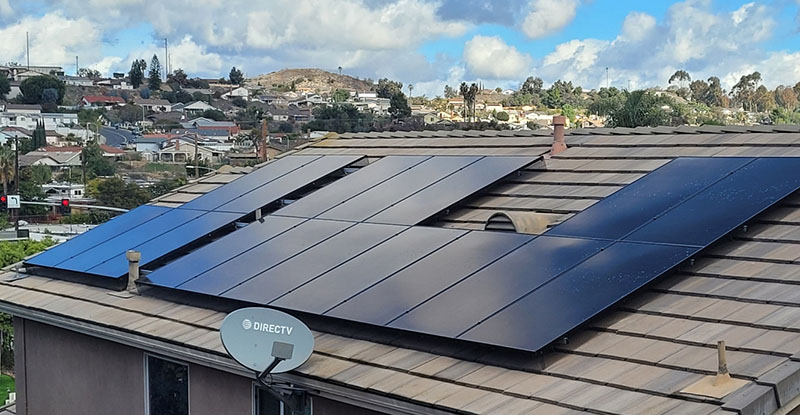Solar panels last a very long time and technology is always improving. How do you decide which panel is the right fit for you? Should you pay more for a brand name? Is there that much of a difference in quality and longevity? Which panel will perform the best in the long run? There are many elements to consider.
When It Comes To Solar Panels, Every Home Is Different
Solar panels are not one size fits all. They are chosen based on their specific application. Every home solar system is custom designed. For example, an expensive high-efficiency panel may perform just as well as a standard or economy panel under certain circumstances. Bigger is not always better.
There are numerous variables to consider when designing a solar system for a residence. For example – number and age of occupants, roof tilt, type of roof, number of trees in the vicinity and what type, age of home, etc. Which solar panel you choose depends a lot on these variables.
Each type of panel performs differently in different conditions. So considering these variables when choosing a solar panel for your home is important. A design expert will do this for you during your consultation. When you meet with a solar consultant, they should ask you questions and closely examine your roof before recommending a specific type or brand of panel.
This tells you that they are looking out for your best interest and not upselling you to a specific high-cost brand. Many homes have roofs compatible with excellent, high performing, low-cost panel options.
Inverter Compatibility
Solar panels and inverters work together to form the main components of your solar system. Some photovoltaic panels are compatible with only specific types of inverters, some with all inverters, etc. Your panels and inverter must fit together like puzzle pieces. The type of system your home needs determines which inverters and panels are an option for you.
Doing a little research into inverters will help you determine which panels are right for you. See our article about different types of inverters, optimizers, and microinverters here.
Choosing the Best Solar Panels
Now that you’ve done the necessary research, you are ready to compare brands and types of solar panels. When determining which solar panel is right for you, there are many things to consider. Let’s break it down into a few simple categories:
Solar Panel Warranties
The various types of warranties and guarantees can be confusing. A product warranty covers the solar panel in case of a manufacturing defect. Typical solar panel lifespan is quite long. Most product warranties are anywhere between 10-25 years. This covers issues such as defects in the panel, premature aging, etc.
Solar Energy Performance Guarantee
The second type of guarantee you should look into is the panel’s performance guarantee. Panels lose a very small amount of efficiency per year. The loss is on the order of less than one percent (typically 0.4 to 0.7%). A performance guarantee assures you that your panels won’t degrade any faster than that. Basically, it ensures your panels will perform at peak levels for their lifetime. These guarantees are usually around 20-25 years.
Solar Panel Efficiency
The efficiency of a panel tells you how well it converts sunlight into electricity. This is not as important of a metric as you may think. Modern solar panels all have very high efficiency, typically around 20%. The differences between panel efficiency ratings are negligible for the cost increase. The only time this might be of importance is if you are trying to maximize production in a small available space.
Solar Panel Wattage
It is easy to confuse efficiency with wattage. A wattage is a unit of measure denoting the potential electrical output of a panel under ideal circumstances. The higher the wattage of a panel, the more electricity it can potentially produce for your home. Higher wattage panels are ideal for smaller spaces that need higher production. However, they often come at a higher price. So it’s not always best to invest in higher wattage panels if it’s not necessary for your home. Additionally, sometimes higher wattage panels are physically bigger. This may mean fewer panels can fit in a certain space, thereby negating the advantage of having a higher wattage.
Solar Panel Aesthetics
As more people are going solar, the need for well-designed panels is becoming a higher consumer demand. Many homeowners want black panels, but there are various types of black panels. Most silicone cells are either dark blue or black. These cells are the squares that make up the face of the solar panels. The space between these cells is where you can see the back sheet. Having a black backsheet makes for a much sleeker, all black look. Finally, considering the frame color is important. Most solar panel frames are anodized aluminum and come in silver or black. Choosing a black frame can enhance the look of your system greatly.

There are many elements to consider when deciding which solar panel is best for your home and your needs. The best way to determine which options may work for you would be to talk with one of our solar specialists. They are well versed in the complex nature of solar system design. They can advise you on which panels will produce the most energy, most economically, and with the most aesthetic system design.





